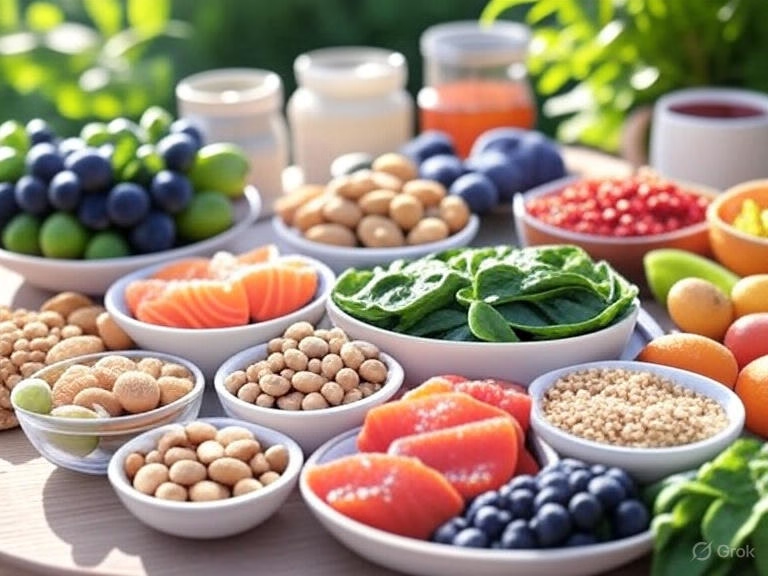How Current Technology Influences Well-Being

In today’s fast-paced world, mental health and healthy eating have become essential pillars for facing the challenges of modern life. The rise of current technologies, like smartphones, social media, and productivity apps, has brought incredible benefits. Nonetheless, it also presents significant challenges for emotional and physical balance. This article examines how healthy eating can promote mental well-being. It also considers how mindful use of technology can enhance quality of life. We will discuss practical strategies and nutrition tips. We will also explore the impact of technological innovations on our daily lives. All points will be backed by reliable references.
The Importance of Mental Health in Modern Life
Mental health is an increasingly discussed topic, especially in a context where stress, anxiety, and depression affect millions globally. According to the World Health Organization (WHO), over 700 million people suffer from mental disorders. This number is worsened by the pressures of modern life. Factors like long working hours, constant screen exposure, and information overload contribute to emotional exhaustion.
How Technology Impacts Mental Health
Current technologies connect us through social media and messaging apps. Nonetheless, these technologies can also be sources of anxiety and stress. Excessive smartphone use contributes to issues like insomnia and reduced attention. It can even lead to low self-esteem, as noted in studies by the American Psychological Association (APA). On the positive side, meditation apps like Calm and Headspace offer tools to manage stress and promote self-care.
The Relationship Between Healthy Eating and Mental Health

A balanced diet plays a crucial role in maintaining mental health. Foods rich in nutrients like omega-3, B vitamins, and antioxidants can improve mood and brain performance. A study published in the Journal of Nutritional Biochemistry showed an important finding. Diets high in fruits, vegetables, and whole grains can lower depression rates. These foods not only nourish the body. They also enhance mental well-being. These foods can help improve mental health.
Foods That Promote Mental Well-Being
- Fatty fish: Salmon, sardines, and tuna are sources of omega-3, which help reduce brain inflammation and improve mood.
- Fruits and vegetables: Rich in antioxidants, like blueberries and spinach, they combat oxidative stress that can affect brain health.
- Nuts and seeds: Almonds and chia seeds offer magnesium, essential for stress regulation.
- Whole grains: Brown rice and quinoa stabilize blood sugar levels, preventing anxiety spikes.
Incorporating these foods into a healthy diet can be a powerful step toward improving mental health. Additionally, it is equally important to avoid ultra-processed foods high in sugars and trans fats. Nutritionists suggest this in articles from Harvard Health Publishing.
Modern Life and the Challenges of Technology
Modern life is characterized by reliance on current technologies, like artificial intelligence, mobile devices, and social media. While these tools aid communication and information access, they can also lead to digital addiction and social disconnection. A report from the Pew Research Center shows that 70% of adults feel overwhelmed by online information. They consume a significant amount of this information each day.
How to Balance Technology and Well-Being
To reduce technology’s negative impacts, it’s essential to adopt self-care and time management practices:
- Set screen limits: Dedicate screen-free moments during the day, especially before bed, to improve sleep quality.
- Use productivity apps: Tools like Trello or Notion help organize tasks and reduce stress.
- Practice a digital detox: Set aside one day a week to disconnect from social media. Focus on offline activities like reading or exercise.
These strategies, paired with a healthy diet, can help keep balance between modern life and well-being.
Practical Strategies to Integrate Eating and Technology into Your Routine
Integrating a balanced diet and mindful use of technology seem challenging, but simple practices can make a difference:
- Plan healthy meals: Use apps like MyFitnessPal to track nutrient intake and guarantee a healthy diet.
- Practice mindfulness with technology: Apps like Insight Timer offer guided meditations to reduce stress and enhance mental health.
- Automate healthy choices: Set reminders on your smartphone to drink water, take breaks, or eat nutritious snacks.
- Join online communities: Forums like Reddit or groups on X (x.com) offer support for those seeking to improve mental health and nutrition.
Internal Links for Greater Engagement
For more tips on healthy eating, check out our article on How to Create a Healthy Daily Meal Plan. If you want to explore more about mental health, read our guide on Meditation Techniques for Beginners.
Long-Term Impacts of a Balanced Lifestyle

Adopting a balanced diet and mindful use of technology improves mental health in the short term. It also offers lasting benefits. Studies from the National Institutes of Health (NIH) show that adopting healthy habits can lower the risk of chronic diseases. This includes diabetes and cardiovascular issues. Such habits include nutrient-rich diets and quality sleep. These include diabetes and cardiovascular issues.
Moreover, responsible technology use can boost productivity and a sense of control over life. Artificial intelligence tools, like virtual assistants, can organize routines. Online learning platforms like Coursera offer courses on self-care and nutrition.
Conclusion: Finding Balance in Modern Life
Mental health, healthy eating, and mindful use of current technologies are interconnected elements that can transform modern life. Lasting well-being can be achieved. This is done by prioritizing a balanced diet rich in nutrients. It also involves adopting practices like digital detox and mindfulness. When used in moderation, technology can be a powerful ally. It offers tools to manage stress, enhance productivity, and promote mental health.
For more information, explore reliable resources like the WHO, Harvard Health, and Pew Research Center. Also, follow our posts on X for daily tips on mental health and nutrition.

